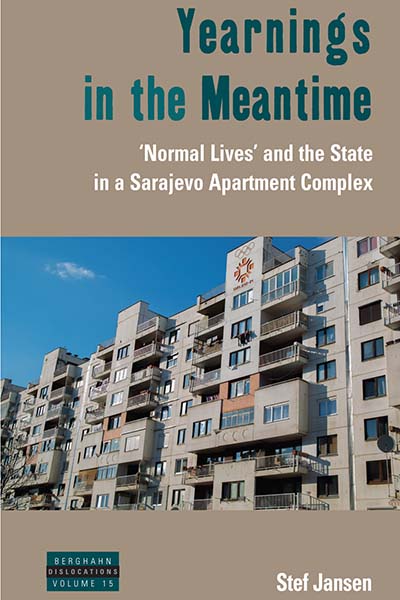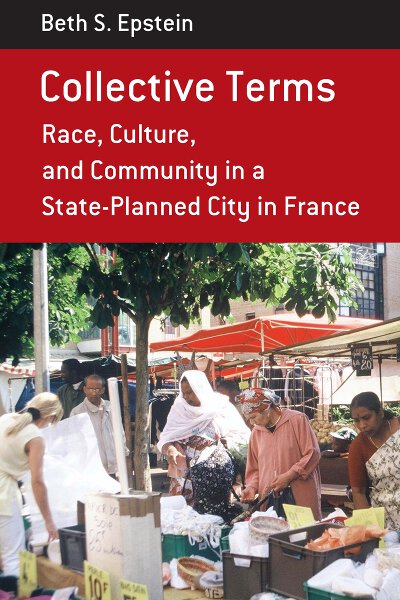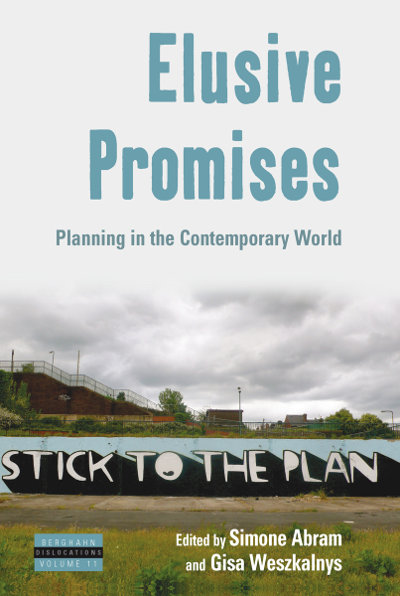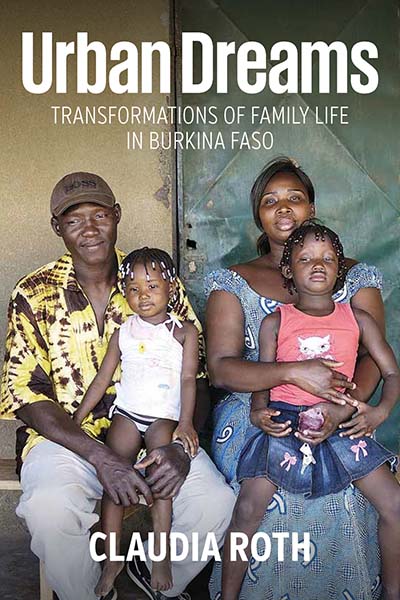
Series
Volume 15
Dislocations
See Related
Anthropology JournalsEmail Newsletters
Sign up for our email newsletters to get customized updates on new Berghahn publications.
Yearnings in the Meantime
'Normal Lives' and the State in a Sarajevo Apartment Complex
Stef Jansen
262 pages, 17 illus., bibliog., index
ISBN 978-1-78238-650-6 $135.00/£104.00 / Hb / Published (June 2015)
ISBN 978-1-78533-821-2 $34.95/£27.95 / Pb / Published (March 2018)
eISBN 978-1-78238-651-3 eBook
Reviews
“Stef Jansen is one of the most prolific ethnographers of the post-Yugoslav space, but his new book Yearnings in the Meantime: ‘Normal Lives’ and the State in a Sarajevo Apartment Complex has much to offer to audiences beyond those specializing on Balkans scholarship, or even postsocialist studies. Jansen’s monograph is timely and distinct contribution to the anthropology of state, which is particularly attuned to the affective, experiential and aspirational dimensions of political life… Jansen’s carefully situated analysis also complicates the ways in which the idea of ‘normal life’ has so far been examined in postsocialist anthropology, where ‘normalcy’ often became associated with the desire for reintegration into the western capitalist political and economic trajectory.” • Political and Legal Anthropology Review (PoLAR)
“The book is essential reading for those interested in the interactions between citizens and state in Southeastern Europe.” • Südosteuropa
“…a carefully conceptualized and thoroughly researched ethnographic account of ‘yearnings for normal life’ among ordinary people living on the outskirts of Sarajevo, Bosnia-Herzegovina. The book is also a timely theoretical investigation of statecraft, statehood, hope, temporality, normalcy, and citizenship in contemporary Bosnia-Herzegovina and beyond. Jansen’s account is well-written and accessible, and its ‘tone’ is complex as it moves from intimate and reflexive to bold, critical, and analytical.” • Slavic Review
“This study is directed… at all those keen to think in totally original ways, to read, to practice and write in political anthropology not from the perspectives of state institutions but of daily routines of citizens… Jansen succeeds admirably in diving into ordinary life in this peripheral part of Sarajevo. Finally, his writing is full of originality and sometimes black humor in spite of the relative seriousness of his topic of his study.” • The French Political Science Journal
“This is an impressive, exceptionally intelligent book that offers many productive starting points for the anthropological discussion of the conditions of ‘hope’, of statehood, of the transformation of contemporary Europe as well as of the fundamental question about the relationship between everyday life and the political.” • H-Soz-Kult
“Yearnings in the Meantime confirms Stef Jansen’s position as the leading anthropologist working in Bosnia. This focused and thoroughly researched monograph builds upon his earlier concerns with the temporality of home, nationalism, borders and migration. First and foremost, it reads as a convincing ‘critique from within’ of the contemporary Bosnian political system, a never-ending transition rooted in the Dayton Agreement, which is said to have officially ended the 1990s war. From this vantage point, Jansen is then able to raise important questions for the anthropology of the state, developing a case for a shift away from what he calls the ‘libertarian paradigm’, which ‘posits the state predominantly as an imposed externality’ and/or ‘documents people’s resilience in opposition to, or oblivious to, statecraft thus conceived’.” • Anthropological Forum
“Jansen confronts some of the most urgent political and academic debates surrounding citizen’s ties to their state and their projected futures. His contribution is of great significance beyond the discipline of anthropology alone. It provides an interdisciplinary understanding of postsocialist and postwar environments in stasis, struggling to achieve effective transformation. It may be a small hope, but it is nonetheless an important one, in which a book such as this might contribute not only to the awareness, but the response to such conditions.” • CritCom
“In the end, perhaps contrary to the author’s plan, the book does give hope for the anthropological project. Its arguments are pertinent not only to the understanding of the spatiotemporal fractures so palpable in Bosnia, but also to our engagement with the state and, I would argue, with a much more diverse world of ‘grid loss’ and ‘grid desire’.” • Anthropology News
“…thoughtful and theoretically important… Even anthropologists not particularly interested in Bosnia or the former Yugoslavia should read this orienting [book] and ponder its implications for the discipline's focus on the stable/normal and the spectacular.” • Anthropology Review Database
“…an engaging, well-written and thought-provoking manuscript highlighting a sliver of everyday life from the perspective of ordinary people living in an apartment complex located on the outskirts of Sarajevo.” • Linda Green, University of Arizona
“Through a focus on the everyday yearnings of ordinary residents of the Sarajevo peripheral neighborhood Dobrinja for what they call ‘normal lives,’ Stef Jansen tackles some of the most timely political and academic questions that revolve around people’s relationships to the state and thinking about the future.” • Elissa Helms, Central European University
“The book… addresses issues of considerable scientific and social importance that reach far beyond current social and political problems in Bosnia and Herzegovina. . . [Jansen] manages to keep the balance between a personal engagement and a critical stance of a sharp and professionally accomplished analyst.” • Maja Povrzanović Frykman, Malmö University
Description
Shortly after the book’s protagonists moved into their apartment complex in Sarajevo, they, like many others, were overcome by the 1992-1995 war and the disintegration of socialist Yugoslavia More than a decade later, in post-war Bosnia and Herzegovina, they felt they were collectively stuck in a time warp where nothing seemed to be as it should be. Starting from everyday concerns, this book paints a compassionate yet critical portrait of people’s sense that they were in limbo, trapped in a seemingly endless “Meantime.” Ethnographically investigating yearnings for “normal lives” in the European semi-periphery, it proposes fresh analytical tools to explore how the time and place in which we are caught shape our hopes and fears.
Stef Jansen is a Senior Lecturer in Social Anthropology at the University of Manchester. He is also the co-editor of Struggles for Home: Violence, Hope and the Movement of People (Berghahn 2008, with S. Löfving), and has conducted ethnographic research in Serbia, Croatia, and Bosnia and Herzegovina since 1996.




